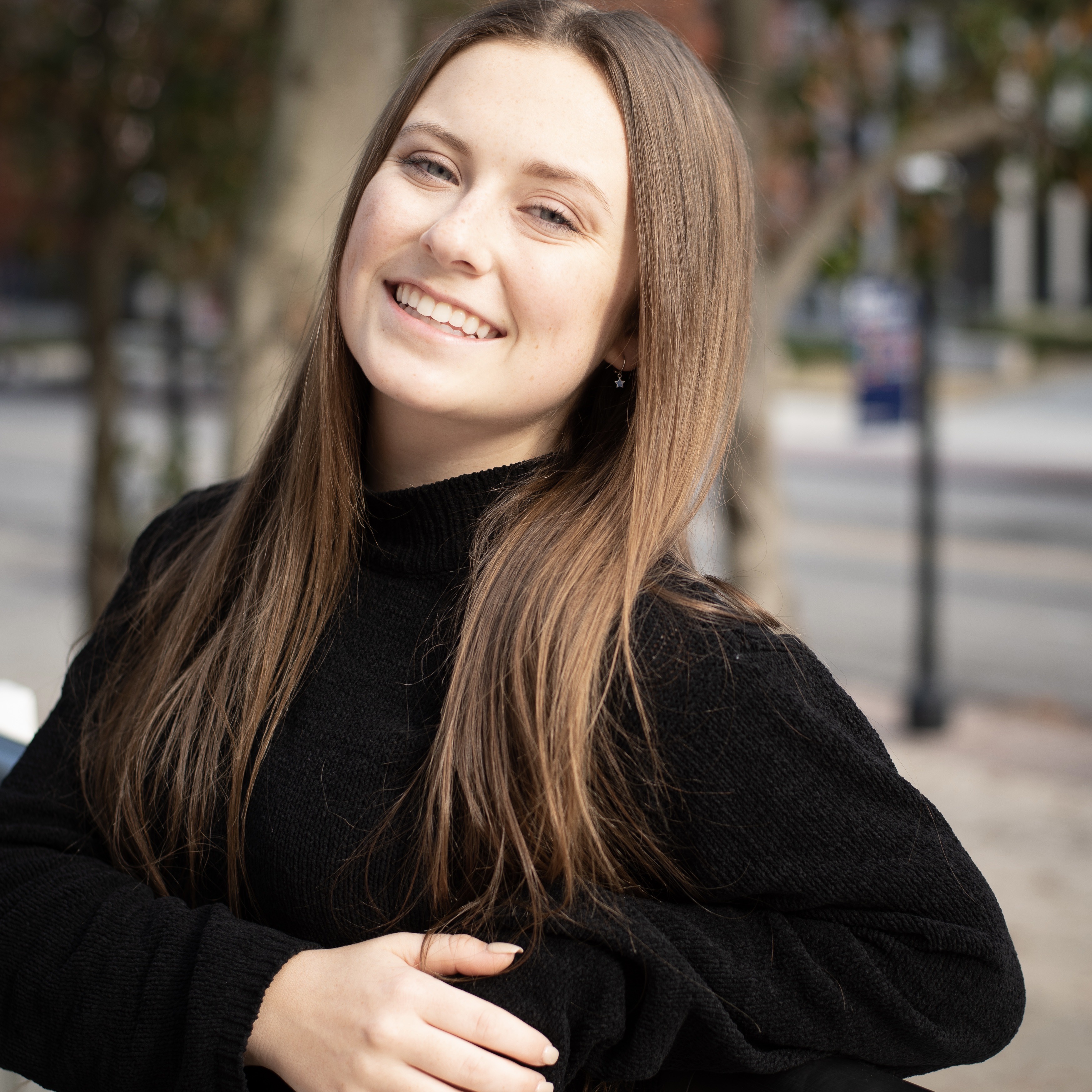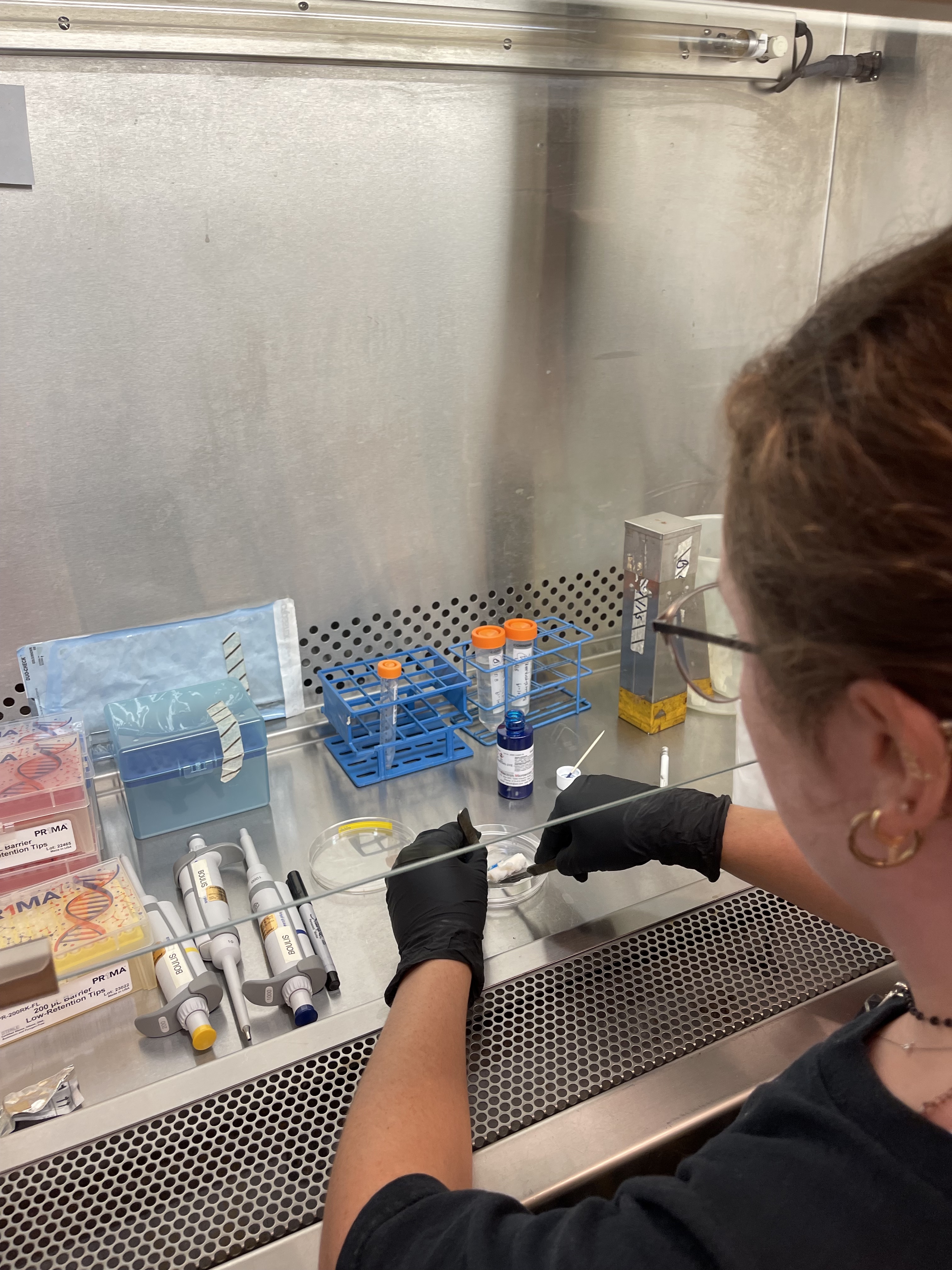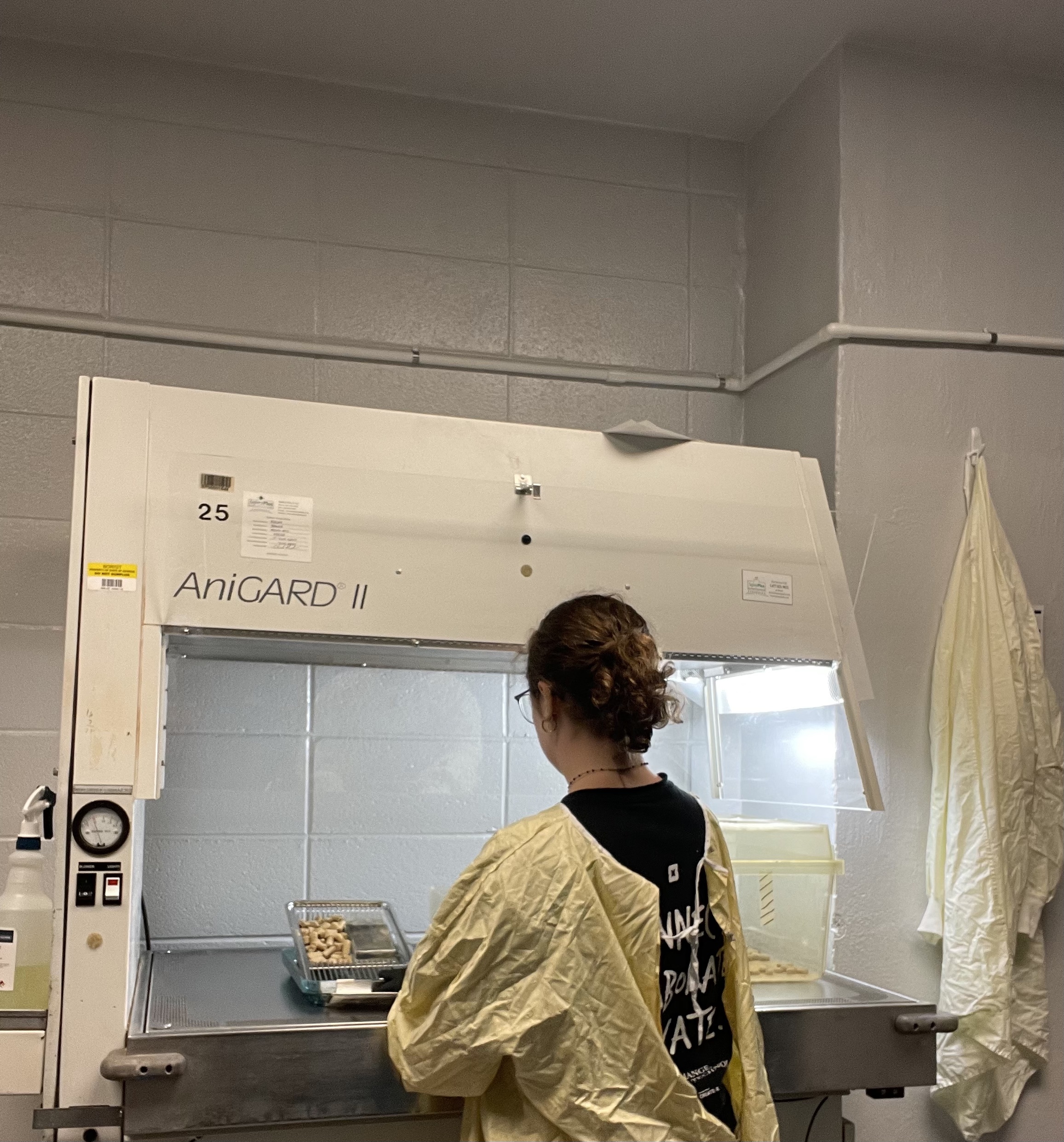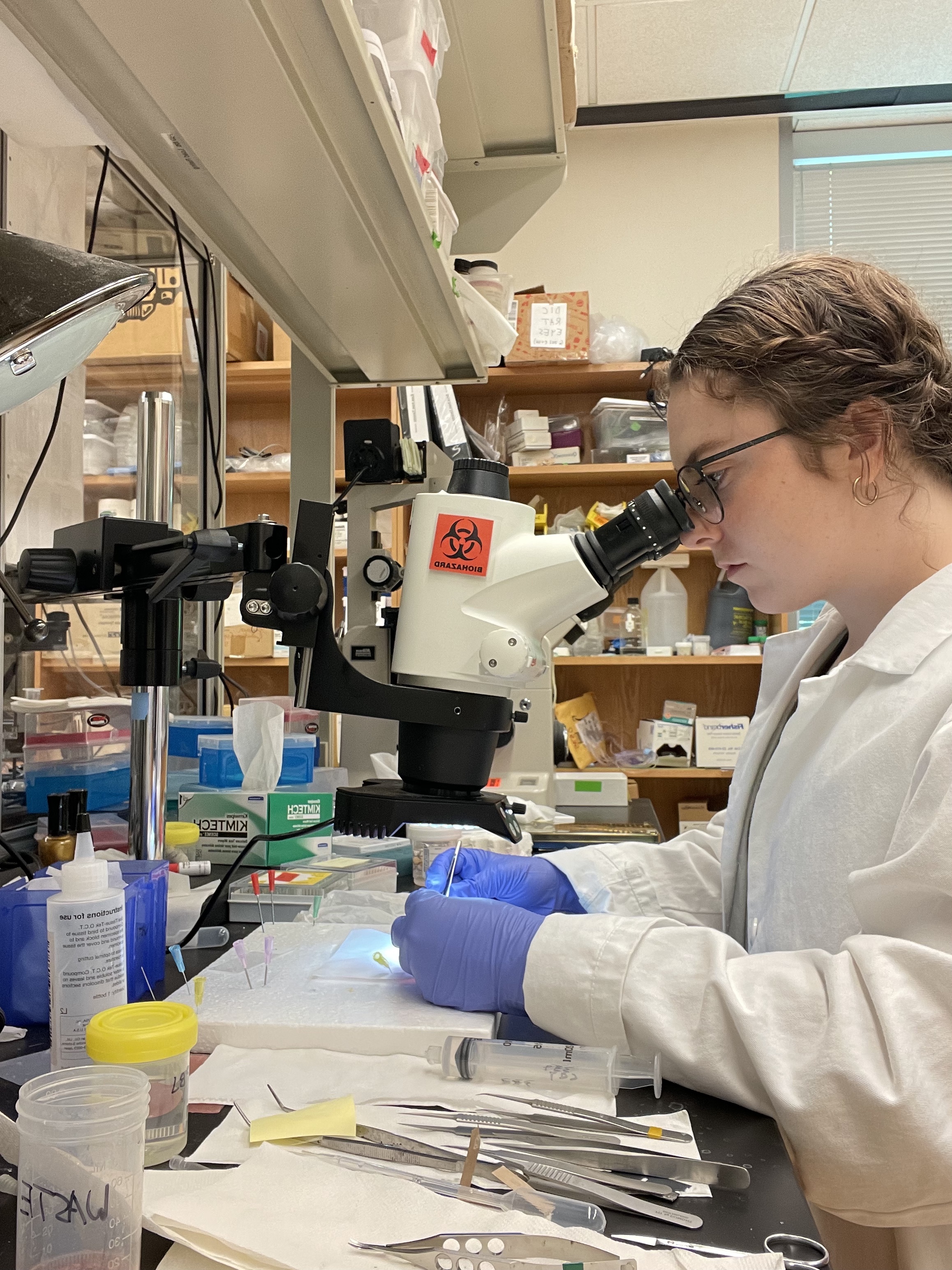Marybeth Yonk is a 4th-year Neuroscience major studying drug repurposing to treat glioma (a central nervous system cancer) with Dr. Nicholas Boulis.

How long have you been an undergraduate researcher at Georgia Tech?
I started as an undergraduate researcher in the Ethier Lab at Georgia Tech my second year and remained there for a year. My third year, I started my research at Emory in the Boulis Lab and I have been there ever since.
How did you get involved with undergraduate research?
I knew that I wanted to be involved in research coming into college, so I started by looking around for labs at Tech and found subject areas that interested me. From there, I emailed the lab and expressed my interest in becoming an undergraduate researcher.

What are you working on?
All the projects I am a part of involve improving the clinical aspects of glioma (central nervous system cancer) treatment by incorporating animal models and patient samples. The main project I am working on is a drug repurposing project based on the reuse of FDA-approved drugs to treat spinal cord glioma. The research I do is translational to many areas of study- whether it be computational, clinical, or in cell/animal models.

What is your favorite thing about research/researching?
My favorite thing about research is watching all our lab’s findings come together to tell a story. It is easy to get caught up in your individual portion of a project, but when conducting the data analysis and compiling the results from different tests and assays into a publishable product, you are reminded of just how impactful your research is.

What are your future plans and how has research influenced them?
My plan is to pursue an MD/Ph.D. in Neurosurgery/Neurology. Initially, I just planned on pursuing an MD, but after working in a clinical research lab, I have developed a passion for intertwining treatment development and personalized patient data into research. I think research and innovation is necessary for successful medicinal developments and I want to combine those passions into one career and see how research impacts positively affect patients.
